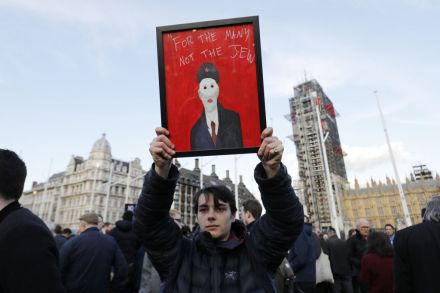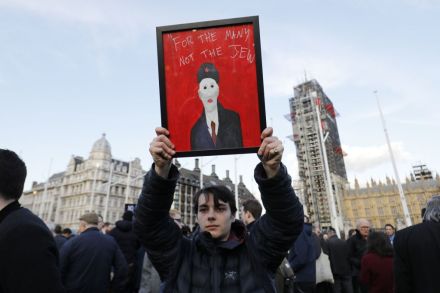The left’s anti-Semitism blindspot
None of this is normal. It’s important that we cling to that. It’s not normal that British Jews are forced to protest for their fair treatment and safety. It’s not normal that four-fifths of the Labour Party think such protests are a political tactic or a Zionist plot. It’s not normal that the man who would be Britain’s next Prime Minister has to delete his Facebook account because he cannot be sure how many hate groups he is a member of. Anti-Semitism is a historical constant but it is not normal. We decide our norms and if we are still a just and civilised people we ought to regard it




















